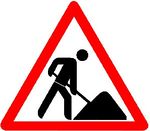Maskless Aligner (Heidelberg MLA150): Difference between revisions
Jump to navigation
Jump to search
Content deleted Content added
initial page with placeholders |
link to MLA150 recipes |
||
| Line 41: | Line 41: | ||
* [[MLA150 - Design Guidelines]] |
* [[MLA150 - Design Guidelines]] |
||
* [[MLA150 - CAD Files and Templates]] |
* [[MLA150 - CAD Files and Templates]] |
||
== Recipes == |
|||
* '''Recipes > Lithography >''' [[MLA150 Recipes|'''<u>MLA150</u>''']] |
|||
** ''Starting recipes for various I-Line photoresists'' |
|||
Revision as of 05:25, 14 September 2020
 Work In Progress This article is still under construction. It may contain factual errors. Content is subject to change. |
|
About
The MLA150 allows for arbitrary direct patterning of I-Line photoresists, directly from a CAD drawing/file, and alignment to arbitrary features on the sample. The system uses a optical digital light process (MEMS light-field patterning) to programatically expose digitized patterns directly onto the sample - no glass photomasks/reticles are required.
Detailed Specifications
- Wafer size:
- Wafer / substrate thickness:
- Exposure optics:
- Laser #1:
- Laser #2:
- Focus modes:
- Alignment:
- Modes?
- Accuracy:
- Repetability
- Additional manufacturer options (none installed on our systems):
- Focus option?
- Dual lasers?
- High-resolution option?
- Uniformity:
- Write speeds:
Documentation
Design Tools/Info
Recipes
- Recipes > Lithography > MLA150
- Starting recipes for various I-Line photoresists